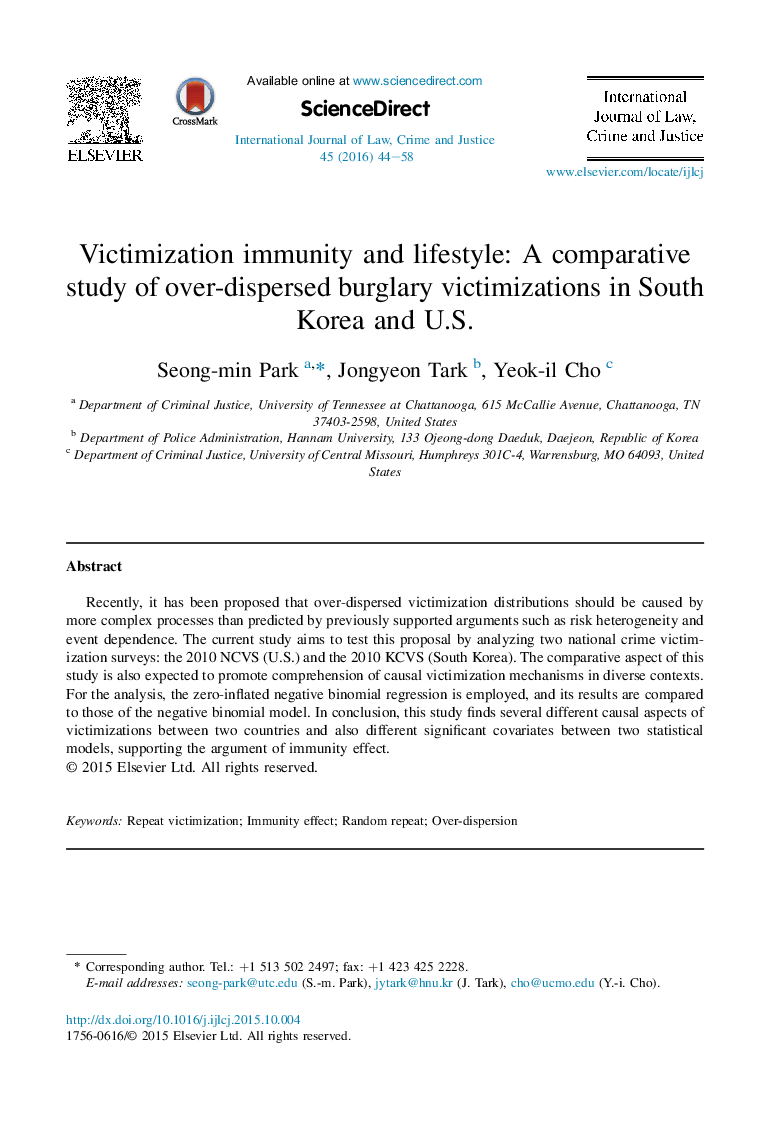| Article ID | Journal | Published Year | Pages | File Type |
|---|---|---|---|---|
| 1097808 | International Journal of Law, Crime and Justice | 2016 | 15 Pages |
•Recently, it is argued that the recurrence of victimizations to the small portion of the population should be caused by more complex processes than predicted by risk heterogeneity and event dependence.•The notion of random repeats implies that the recurrence of victimizations can happen without the conditions of risk heterogeneity and event dependence.•The argument of immunity effect posits that those with low probability of victimization also influence the recurrence of victimizations by inflating other people's chance of victimizations.•The zero-inflated negative binomial regression estimates two sets of covariates: one for immunity factors and the other for high risk factors.•The comparison between findings from KCVS and NCVS reveals different contextual effects of life styles between two countries.
Recently, it has been proposed that over-dispersed victimization distributions should be caused by more complex processes than predicted by previously supported arguments such as risk heterogeneity and event dependence. The current study aims to test this proposal by analyzing two national crime victimization surveys: the 2010 NCVS (U.S.) and the 2010 KCVS (South Korea). The comparative aspect of this study is also expected to promote comprehension of causal victimization mechanisms in diverse contexts. For the analysis, the zero-inflated negative binomial regression is employed, and its results are compared to those of the negative binomial model. In conclusion, this study finds several different causal aspects of victimizations between two countries and also different significant covariates between two statistical models, supporting the argument of immunity effect.
